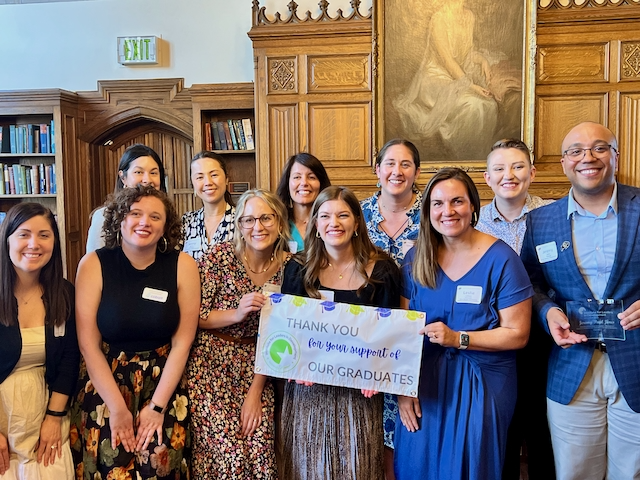Congratulations on your Graduation!
The Class of 2023 graduated May 16th at University of

Denver. ILD was pleased to welcome Lorii Rabinowitz, Chief Executive Officer of Denver Scholarship Foundation as the keynote speaker. Lorii recognized ILD, including alumni who've worked on her team for their achievements and dedication to this important and fulfilling work. Jeremy Johnson spoke on behalf of his class perfectly summarizing the ILD experience from the excitement at the beginning, to the numerous opportunities to learn from one another throughout the year, to the Capstone project and presentations.
Alumni, volunteers, board members, faculty, sponsoring organizations and guests of our alumni enjoyed the evening reception. We are happy to welcome each of you to the ILD alumni community!
Graduates front row left to right: Sam Lincoln, Sarah Korn, Chrsti Meyer, Jenna Kamlet, Leslie LeFever, Jeremy Jones. Back row left to right: Gaby Garayar, Jenny Martin, Aimee Quadri-Chavez, Theresa Garcia, and Maggie St. Clair.
Not pictured: Marsha High III